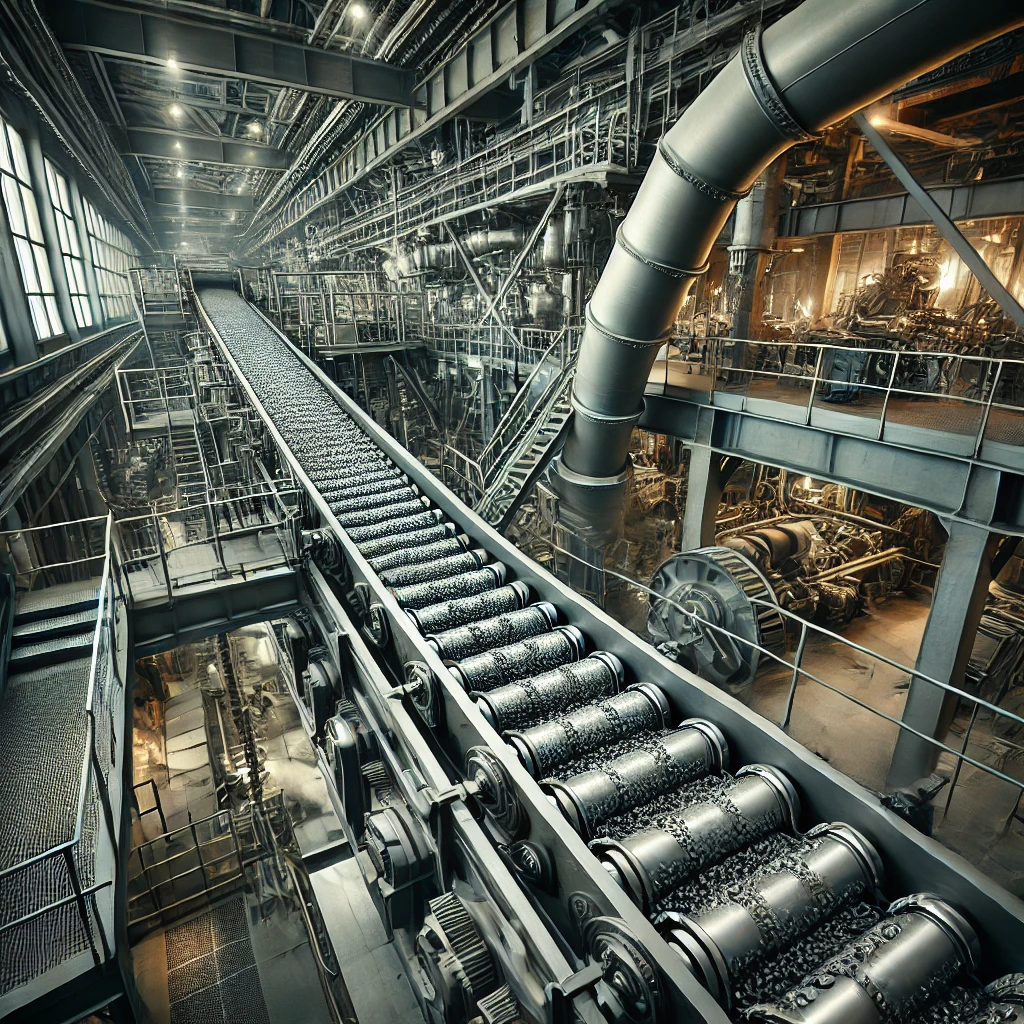Delivering Reliability: Supplying High-Performance Conveyor Chains to the Energy-from-Waste Industry
In today’s rapidly evolving world, the energy-from-waste (EfW) industry plays a vital role in reducing landfill use and transforming waste into a valuable resource. This process hinges on the seamless operation of advanced machinery, and at the heart of this machinery lies an often-overlooked but indispensable component: conveyor chains. These high-performance chains ensure the efficient handling of materials in harsh environments, making reliability and durability paramount.
In this blog, we explore how premium-quality conveyor chains are engineered and supplied to meet the demands of the EfW industry, delivering unmatched reliability and performance.
The Role of Conveyor Chains in Energy-from-Waste Facilities
EfW plants are complex operations where waste is converted into usable energy through processes like incineration, gasification, or anaerobic digestion. Conveyor chains are critical for moving materials such as refuse-derived fuel (RDF), incinerated bottom ash (IBA), and other by-products through various stages of the process.
Key functions of conveyor chains in EfW facilities include:
-
Fuel Feeding: Transporting waste materials to combustion chambers or processing units.
-
Ash Removal: Moving residual ash safely away from combustion zones.
-
Heat Recovery: Supporting systems like boiler ash conveyors in high-temperature environments.
-
Sorting and Recycling: Facilitating the separation of recyclable materials from non-recyclables.
Challenges of the EfW Industry
Conveyor chains in the EfW sector face some of the harshest operating conditions, including:
-
High Temperatures: Exposure to extreme heat in incineration zones.
-
Abrasive Materials: Constant contact with coarse and abrasive substances like ash and debris.
-
Corrosive Environments: Chemical exposure from waste gases or moisture.
-
Heavy Loads: Handling the significant weight of processed materials.
These challenges demand robust and reliable solutions, making the design and quality of conveyor chains critical for plant efficiency and longevity.
Engineering High-Performance Conveyor Chains
The demands of the EfW industry require conveyor chains that go beyond standard specifications. Here’s how high-performance chains are engineered to meet these needs:
-
Material Selection:
-
Premium-grade steels, such as stainless or heat-treated alloys, provide excellent strength and resistance to wear, heat, and corrosion.
-
-
Heat Treatment:
-
Advanced heat treatment processes harden critical components, such as pins and bushings, to extend wear life under abrasive conditions.
-
-
Specialised Coatings:
-
Anti-corrosion coatings and surface treatments protect chains in chemically aggressive environments.
-
-
Precision Manufacturing:
-
Tight manufacturing tolerances ensure smooth operation and reduce the risk of failure, even under heavy loads.
-
-
Customisation:
-
Tailored designs accommodate specific plant requirements, such as custom chain sizes, pitch lengths, or attachments.
-
Reliability Through Innovation
In the EfW industry, unplanned downtime can lead to costly delays and inefficiencies. High-quality conveyor chains help mitigate these risks through innovative features such as:
-
Sealed Bearings: Minimise contamination and reduce maintenance needs.
-
Self-Lubricating Systems: Enhance chain longevity in high-temperature or hard-to-access areas.
-
Modular Designs: Allow for quick and easy replacement of worn components, minimising operational disruptions.
By investing in cutting-edge technology and rigorous testing, suppliers ensure their conveyor chains deliver optimal performance in the most demanding environments.
Partnering with Trusted Suppliers
Selecting the right supplier is crucial for the EfW industry. A reliable partner not only provides high-quality conveyor chains but also offers:
-
Expert Consultation: Understanding your plant’s unique requirements and recommending the best solutions.
-
Comprehensive Support: Offering installation guidance, maintenance services, and fast access to replacement parts.
-
Sustainability Commitments: Using environmentally friendly materials and processes to align with the industry’s green mission.
Success Stories: Reliability in Action
One EfW facility in the UK faced frequent breakdowns due to poorly manufactured conveyor chains, resulting in significant downtime and repair costs. After switching to high-performance chains from a trusted supplier, the facility reported:
-
50% Reduction in Downtime: Chains lasted significantly longer, even under heavy use.
-
Improved Efficiency: Optimised material flow increased throughput.
-
Lower Maintenance Costs: Durable designs reduced wear and tear.
Such success stories demonstrate the impact of quality engineering on operational success.
Conclusion
In the energy-from-waste industry, reliability isn’t optional—it’s essential. High-performance conveyor chains are the backbone of material handling systems, ensuring smooth operation and minimal disruptions. By prioritising quality, customisation, and innovation, these components empower EfW facilities to maximise efficiency and sustainability.
As the UK and the world continue to embrace greener energy solutions, the role of precision-engineered conveyor chains will remain indispensable. Partner with trusted suppliers to keep your operations running smoothly and reliably—because in EfW, every link in the chain matters.

